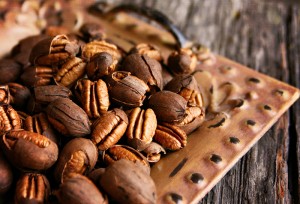 My family has been in the pecan industry for the past 45 years and never have we seen the escalating pecan prices that we have seen during the last few. Pecan prices are at an historic high. There have many national stories from Forbes to The Wall Street Journal that have covered the bewildering high pecan prices and how this will affect the common consumer. I feel compelled to weigh in and give my perspective since it is my livelihood.
My family has been in the pecan industry for the past 45 years and never have we seen the escalating pecan prices that we have seen during the last few. Pecan prices are at an historic high. There have many national stories from Forbes to The Wall Street Journal that have covered the bewildering high pecan prices and how this will affect the common consumer. I feel compelled to weigh in and give my perspective since it is my livelihood.
How have pecan prices gotten so high, so fast? There are two basic reasons: one is Chinese consumption and the other is weather. Back in 2007 importers bought roughly one million pounds of pecans to have shipped to China. Turns out, they loved them. It also turns out that the Chinese population is huge. Fast-forward to 2012 when the Chinese bought more than 100 million pounds of pecans. That’s no typo. 100 million pounds! This is where the problems start because the US we only harvests around 385 million pounds in a given year, give-or-take a few million pounds here and there. That means China bought more than 25% of the US crop. This doesn’t even factor in what they may have purchased from Old Mexico and South Africa, the only two other pecan-growing regions in the world. In a little over six short years the Chinese appetite for pecans has become insatiable. When I tell people about these numbers they always have the same question: “What are the Chinese doing with all of those pecans?” Eating them, of course! There are more than 1.3 billion people living in China!
So this is the rub: you can’t just plant pecans overnight. When a wheat farmer doesn’t like market prices, he can simply dig up his field and plant corn the very next year. Not so much with pecans. You have to wait nearly ten years for an average pecan tree to bear fruit. So when there is a global demand for the product like there is, the prices tend to spike and stay high until supply can catch up. In this case, unless the Chinese appetite abates, we will be waiting for some time until new trees can be planted and pecan yields catch up to demand. And that could be a while.
As far as weather is concerned, it seems like on top of the Chinese interest in pecans, the pecan industry found itself caught in the perfect storm in 2013. Texas crops experienced a late spring freeze that damaged pecan growth. Georgia, the number one pecan-producing state, got hit with daily rainfall during a critical stretch this summer that caused a full-blown scab outbreak. Scab is a fungus that grows on pecans and will stunt their meat growth inside of the shell. This was devastating to some of the top producing pecan counties in Georgia, ruining entire crops in a few orchards.
So when you combine Chinese consumption with wicked weather patterns all you have left is sky-high pecan prices due to a low domestic supply. Now, if you are a farmer with a decent crop you are singing to the bank. If you are anyone else you’re out of luck. If you want pecans, you are going to be hard-pressed to find prices that even remotely look like they were before 2010 or so.
What does this mean in the long run? It’s hard to say, really. There are rumors that China may start buying South Africa’s entire crop, easing their dependence on American-grown pecans. There are even rumors that import tariffs will rise, causing them to look for alternatives like walnuts. One thing is for sure: China, like India, has an emerging middle class that has more money than their previous generation, and they are becoming savvy consumers. As long as this is the case, I believe pecans have found a permanent home in the Far East. We have all known for a very long time that pecans are great. It is no wonder that the Chinese think so too now.
As far as the weather, well, weather comes and weather goes. We are sure to beat Mother Nature when we can and get a good healthy harvest in the future. But in the meantime be prepared to pay a bit more for God’s gift to the South.
In the short run it really bums me out. Expensive pecans turn people off, plain and simple. Consumers will just start looking for other products to consume, use as ingredients or gifts. And as we lose domestic demand it really starts to get scary. Will consumers ever come back? I think so, because let’s face it: the alternative is terrible to bear…peanut pie for Thanksgiving? I just threw up a little bit in the back of my throat.
